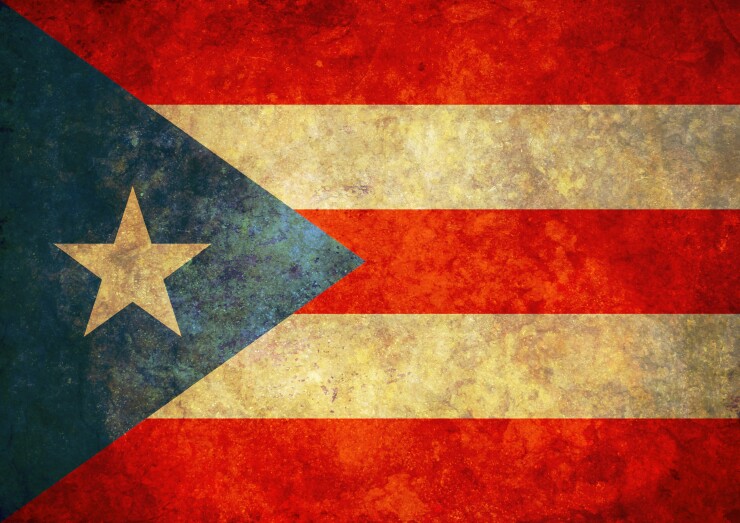A year-long dispute over nine Puerto Rico-based investment funds that hold municipal securities has intensified over the past few weeks, raising issues of disclosure, investment fund shareholder voting, and Securities and Exchange Commission regulations.
Puerto Rico-based Ocean Capital said it is trying to gain control of several tax-free Puerto Rico-based income funds through fairly electing members to the funds' board of directors to pursue a different approach to managing them. But the current board members have refused to give up their seats, arguing that Ocean's intentions are to liquidate the funds.
"This is a brazen attempt by the current board to disenfranchise shareholders and further entrench themselves," a publicist for Ocean Capital argues.

UBS Asset Managers of Puerto Rico and Popular Asset Management advise or co-advise the nine funds, which have a total of $560 million under management.
Ocean Capital filed a suit in the Puerto Rico Court of the First Instance in San Juan to force the Puerto Rico Residents Tax-Free Fund I to seat members it says were properly elected to its board.
The Puerto Rico Residents Tax-Free Fund I asked the United States Court for the District of Puerto Rico to combine the case with an earlier one the funds had launched against Ocean Capital.
The nine funds, including Tax-Free Fixed Income Fund for Puerto Rico Residents (I -V), Puerto Rico Residents Tax-Free Fund (VI-VIII), and Tax Free Fund for Puerto Rico Residents, filed the earlier suit again Ocean Capital and related parties on Feb. 28 in federal court.
As of February, Ocean Capital owned between 4.6% and 12.7% shares of each of these funds, according to the funds’ court filing.
The funds said in the complaint that most local investors have a different material interest than the Ocean investors do, arguing Ocean would like to liquidate the funds. Ocean denies seeking to liquidate the funds in its court filing, though in letters to shareholders concerning PRRTFF number IV that liquidation was one possible strategy if it gained control.
Ocean Capital's three principals are beneficiaries of Act 22, the Act to Promote the Relocation of Individual Investors to Puerto Rico, the funds' court filing says. Individuals covered by it don't pay Puerto Rico income tax on, among other things, Puerto Rico-sourced income from capital gains, interest, and dividends.
Ocean Capital said it has been trying to replace the funds’ board of directors to improve the funds’ financial performance.
The funds asserted in its February court complaint that Ocean Capital wants to liquidate the funds.
Liquidating the funds might benefit an Act 22 beneficiary because of their tax exemptions, but not a long-time resident. Act 22 was enacted in 2012 and so if the principals did benefit from Act 22, they must have moved to the island since then.
Since November the PRRTFF number I has made multiple efforts to prevent Ocean from electing and seating members, including through preventing quorums for meeting votes, Ocean said.
In a May 17 vote, 52.2% of outstanding PRRTFF number I shares voted for Ocean-supported candidates, overcoming the quorum bar, Ocean said in a court filing, claiming their candidates got about 3.13 million votes each and the existing board members received about 906,000 votes each. The fund has refused to seat the new members. This fund has $53 million under management.
Ocean cites Puerto Rico law to request the new board members be seated immediately.
The funds also said Ocean has submitted incomplete Schedule 13D forms — filed when more than 5% of a voting class of shares is acquired — with the Securities and Exchange Commission. Ocean says the forms were adequate and have since been supplemented, and the funds are attempting to delay Ocean’s supported people from gaining their rightful place on the board.
The funds also claimed in a separate complaint Ocean made false statements to shareholders in seeking their votes because they did not mention their plans to liquidate the funds or their status as Act 22 beneficiaries, the funds said.
Banco Popular declined to comment for this story. UBS did not respond to requests for comment.





